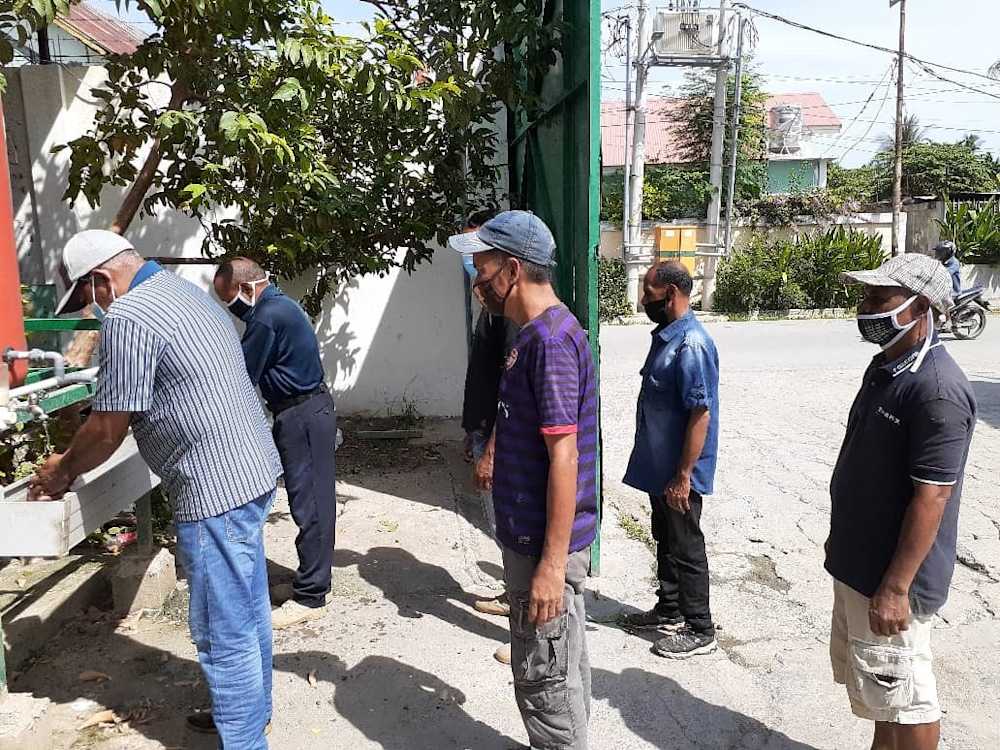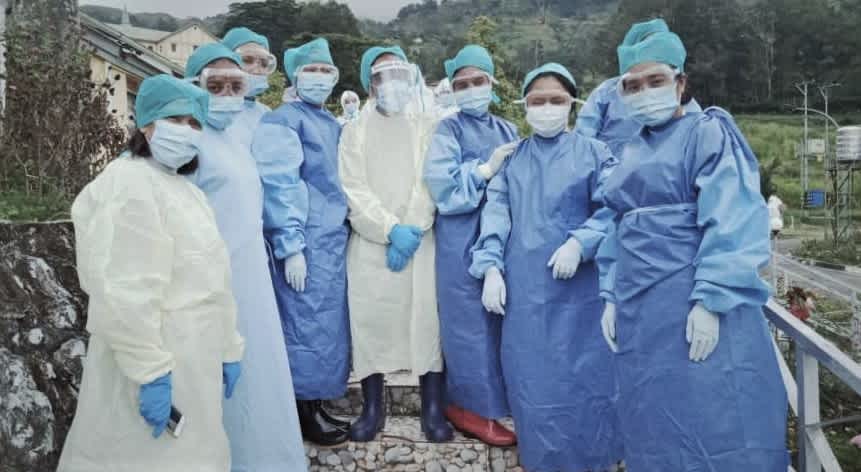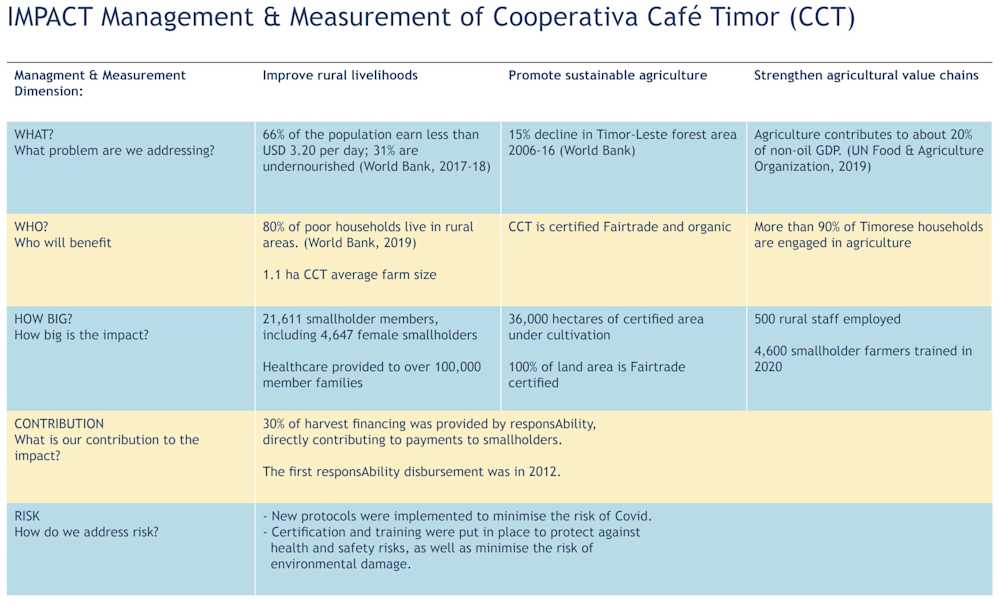Maintaining a healthy environment during Covid-19: Cooperativa Café Timor leads by example.

Timor-Leste, an island country in south-east Asia, was intentionally isolated from the rest of the world during the pandemic, meaning many businesses relying on exports faced economic hardships and often unemployment. One example is responsAbility portfolio company Cooperativa Café Timor (CCT), a large agricultural cooperative, which focuses on organic and Fairtrade certified Arabica coffee exports, as well as cocoa, vanilla and other spices. The cooperative is wholly Timorese-owned and managed, benefitting 21,611 smallholder farmer families.
A HEALTHY WORKING ENVIRONMENT
To maintain the health of the farmers during Covid-19, CCT offered primary health and social development services from its eight fixed health clinics, three mobile clinic teams and village-level extension services. This included broadcasting messages throughout villages from CCT vehicles using newly acquired, roof-mounted loudspeaker systems; health extension teams on motorbikes travelled to local coffee farmer villages disseminating basic information to reduce anxiety and offer simple, practical, preventative actions; within clinics, CCT implemented stricter infection control protocols, PPE masks for staff, and increased volumes of medicine and supplies to counter any potential disruption to drug supply chains; and CCT’s fixed and mobile clinics remained open for all patients throughout 2020, with on average 11,000 patients treated each month.

CCT’s health service also led to the implementation, monitoring and enforcement of Covid protocols for all staff in CCT factories, mills, and facilities. This included staff training, installation of handwashing facilities at the entrance to facilities, and enforced use of face masks and social distancing whilst within CCT facilities.
To reduce risks for CCT staff and farmers when buying coffee cherries, the usual system of direct roadside buying and transport by CCT staff was reassessed. For the 2020 harvest, CCT revised its purchasing methodologies to minimize contact and exposure between farmers and employees. The revised system also resulted in greater efficiency, increased employment opportunities, and lower transmission risk. The individuals involved all received Covid training from CCT and were required to wash hands and limit the number of personnel when delivering coffee cherries to CCT. This procurement system for red coffee cherries worked so well that it will largely continue for subsequent coffee harvests.
ENVIRONMENTALLY HEALTHY FARMING PRACTICES
To maintain their sustainable food production for the longterm during Covid, CCT provided direct monetary support via the purchase of the farmer’s harvests and, due to careful preventative planning, was also able to operate fully during the 2020 harvest season.
WITH FURTHER FUNDING, CCT ALSO CONTRIBUTED TO ENVIRONMENTALLY-HEALTHY FARMING PRACTICES BY:
Training farmers in farm management, environmental management and climate resilience.
Delivering a large and long-term coffee tree and farm rehabilitation program which has reached 15,000 coffee farms so far.
Facilitating farmer access to locally produced organic fertilizer derived from coffee processing waste and improved crop varieties.

The outcome of all the above measures was that CCT managed to purchase a higher than expected 13,900 tonnes of red coffee cherries from Fair Trade and Organic certified farmers. This coffee was processed in-country into a total of 2,130 tonnes of grade one green coffee beans and was exported to Canada, the USA, Australia, China and New Zealand. Considering the obstacles, the management of CCT were pleased with the higher than expected volumes and quality of 2020 exports. CCT will also play a critical role in its farmer communities as it joins with the Government of Timor-Leste in the rollout of Covid vaccinations. CCT’s health service can immediately and efficiently respond, as it routinely delivers the national children’s immunization program and has previously participated in national mass immunization campaigns. Despite economic downturns, adverse climate events and now a worldwide pandemic, every year for over two decades CCT has been in the field buying coffee and supporting farmer communities. This is CCT’s commitment to its members, their families and their communities.
